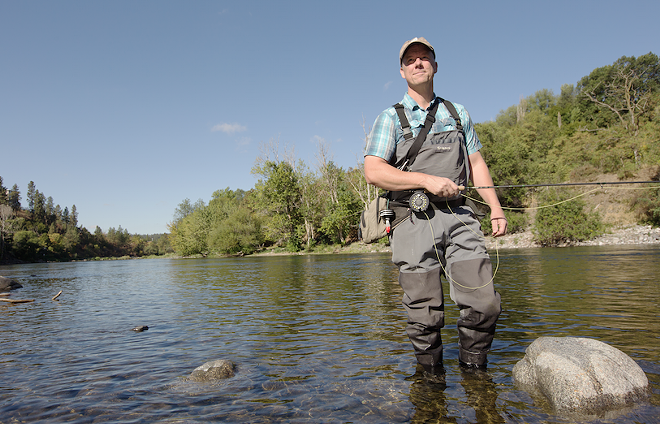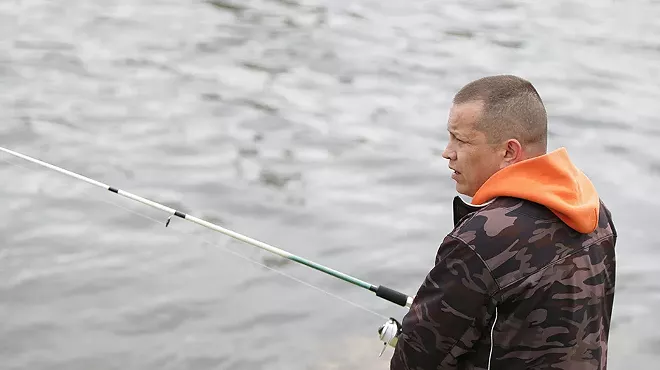Friday, October 3, 2014
Ecology dept. drafts new fish consumption rules amid strong opposition

State Ecology officials this week released new proposed rules on one of the most fundamental aspects of surface water quality protections — how the state should limit toxin levels that threaten the health of people who eat fish or shellfish out of Washington's waters.
Acting on a July 9 announcement from Gov. Jay Inslee, the Department of Ecology on Tuesday released draft rules for "human health criteria," specifically divisive fish consumption rates. The rules increase the assumed amount of fish in people's diets, adjusts cancer risk rates and provides more time flexibility on compliance.
Washington currently assumes a daily fish intake of 6.5 grams, about a pinky finger-sized portion, which many people find completely unrealistic, especially when considering the traditionally fish-heavy diets of Northwest tribes.
The new proposed rules would increase the assumed intake to 175 grams, one of the highest in the nation and viewed as much more representative of actual diets. But it accommodates the higher rates by increasing cancer risk rates from one in 1 million up to one in 100,000.
“We’ve heard a lot of concerns that we are allowing a higher input risk rate for cancer,” Ecology Director Maia Bellon says in a news release. “We recognize that it’s confusing, but the actual risk is not higher. … It’s less about the complex formula going into the standard and more about the level of pollution coming out of the pipe. And the end result is that most standards are more protective."
Bellon stresses that the new rules impose at least the same level of protection as the current rules, with the exception of "naturally occurring arsenic."
Tribal leaders and environmentalists, including the Spokane Riverkeeper, say the increased intake rate, about a full serving a day, makes sense, but they have strongly opposed any weakening of the cancer risk standards. The Northwest Indian Fisheries Commission sent Inslee a letter expressing disappointment with the proposal.
"It is incomprehensible that the state would consider changing the cancer risk rate in state standards to a rate that is ten times less protective," the letter states, adding, "This approach poses an unacceptable risk to tribal health and the exercise of tribal treaty-reserved rights."
Most prominently Boeing, as well as Inland Empire Paper locally, have raised concerns that stronger water quality standards would prove too expensive to be feasible. The Inlander previously covered some of those concerns last year. As has the Seattle-based nonprofit InvestigateWest.
As far as compliance timelines, the new rules would not require companies or local governments to clean up pollution they didn't cause. It also allows for longer compliance timelines if an entity can show it's making progress. Current rules allow companies up to 10 years to comply.
"These rules will set a state policy that allows more people to get cancer and grants polluters decades to meet our water quality standards," says Jerry White, the Spokane Riverkeeper, adding, "[We] must not tinker with the cancer risk or provide 'get out of jail free' cards to those who are subject to the rules."
Read more about the Riverkeeper's ongoing conservation efforts and the pollution challenges facing the Spokane River in this week's paper.
Ecology officials emphasize that changing the cancer rate equation does not change actual exposure or allow any increased toxins. They also believe the more flexible timelines will help companies work toward improved compliance.
"After evaluating the likely costs and benefits of the proposed rule amendments, Ecology believes that the likely qualitative and quantitative benefits of the rule exceed its likely costs," an analysis determines. "We also conclude that the content of the proposed rule amendments is the least-burdensome alternative that achieves the goals and objectives of the authorizing statutes."
Ecology has posted a number of reports and evaluations on the issue. Officials plan to incorporate public involvement, but will not open formal public comment until releasing a final draft rule in January.
Tags: Department of Ecology , water quality , fish consumption , Spokane Riverkeeper , News , Image
















